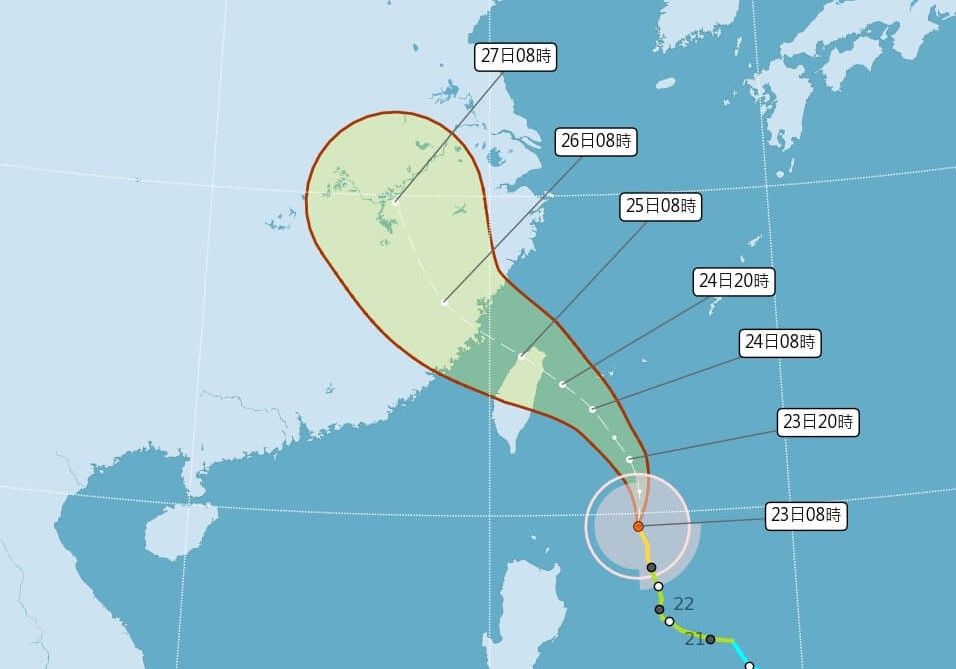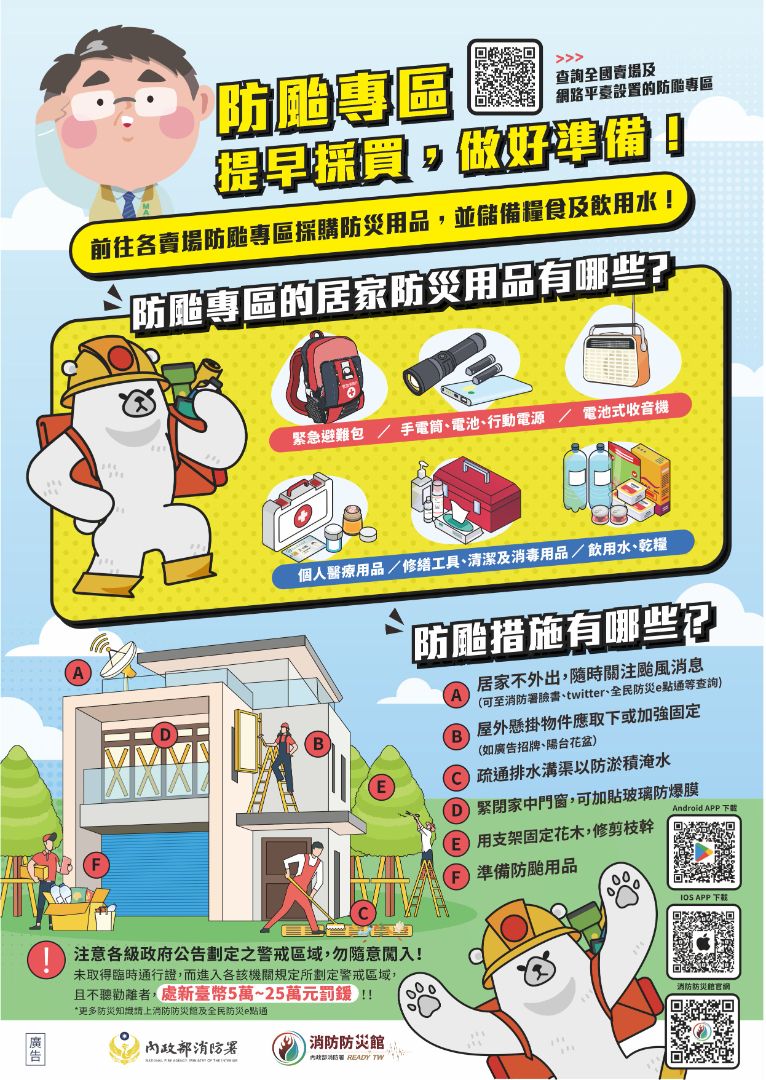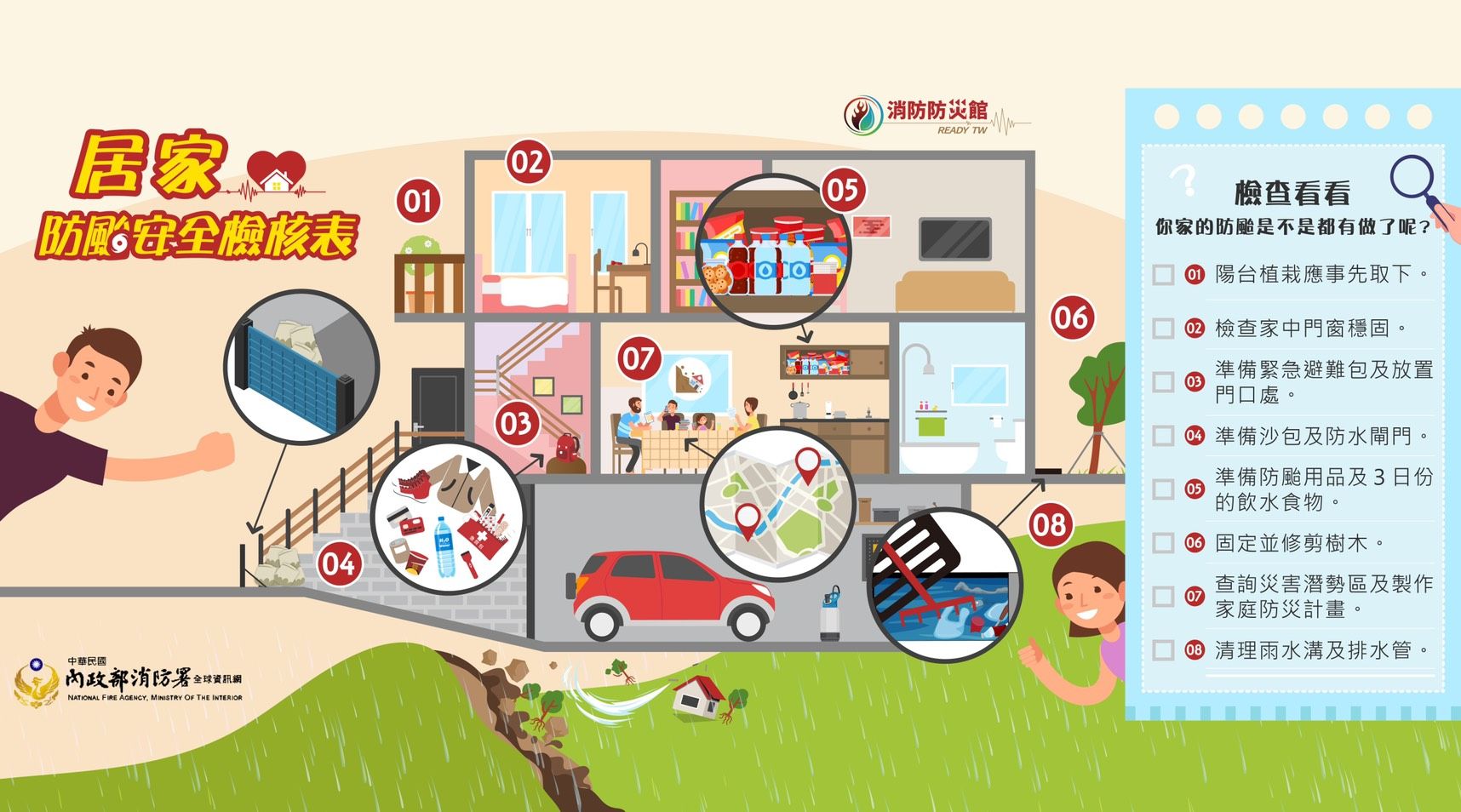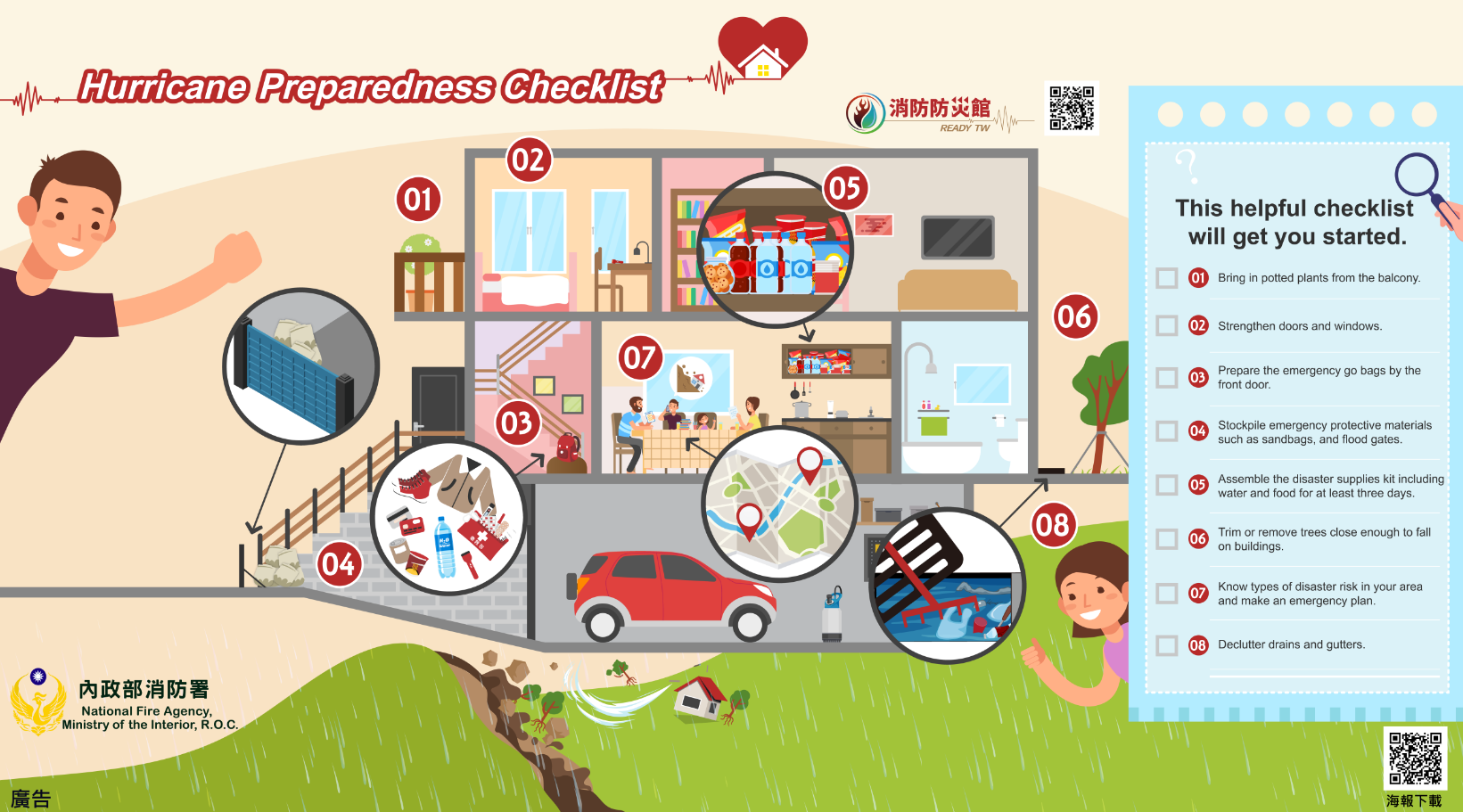中央氣象署於7月23日上午11時30分發布編號第3號中度颱風「凱米」陸上颱風警報,中央災害應變中心提升為一級開設。
凱米颱風朝向臺灣東南方海域接近,強度持續增強,暴風圈(120公里至180公里)直接影響臺灣東部、北部及中部地區的陸地,須嚴防強風豪雨的影響。
請同學避免從事海、水域及山區活動,及早完成防颱應變準備。並請注意下列安全事項,避免意外發生:
一、校外學生活動安全:
依據本校校外學生活動安全輔導辦法規定,學生於辦理各項校外活動前,必須事先簽奉核定後始可出團(出隊)活動。於活動核可後,遇氣象、災害防救單位警報之發布後, 如活動區域為颱風警戒區,請主動聯繫團(隊)員並暫停活動。
二、防颱準備與注意事項:
(一)應預先準備蠟燭、手電筒、電池及手機電池,以備停電及求援之用;亦應儲水備用,以防斷電停水。
(二)房屋外、庭院內,與各種懸掛物件應取下或加強固定 (如陽台花盆),避免被風吹落,變成傷人利器。
(三)準備適量乾糧與飲用水,及個人醫藥用品。
三、颱風來襲時的防範:
(一)應注意電視、廣播、網路或利用「166」「167」氣象錄音電話,隨時收看 (聽)颱風消息,了解最新颱風動向。
(二)避免從事登山、溯溪、垂釣、海上或河堤活動,如正在郊外登山露營學生應及早返家,並向學校、家人電話連繫行程及路線,遇緊急狀況請撥119 或緊急求援電話112。
(三)請勿至海岸、溪流觀浪、戲水、撿拾石頭、捕魚、釣魚,以免發生意外。
(四)看到室外有斷落之電線,不可貿然觸摸,應通知電力公司處理。
(五)閃電雷鳴時,請注意:
1.應停止游泳、划船並上岸到安全的避雨場所。
2.不要在空曠的無防雷建築物內避雨,比如工棚,車棚,遮陽傘下。
3.遠離建築物外露的金屬物體、鐵欄杆、高大廣告牌。
4.不要在大岩石下、山洞口避雷雨,及不宜停留在大樹下。
5.雷雨天減少佩戴金屬飾品,並注意不要高舉球拍、雨傘和魚桿等物品,避免增加有效高度成為「尖端」而遭雷擊。
(六)颱風期間若不得已在外駕車應減速慢行,注意交通安全。行駛中車輛遇強風侵襲,應停於路邊或找安全處所掩避,不可強行駕駛。
四、颱風過後:
颱風過後,部分水溝、坑洞被水淹蓋潛伏危險性,請同學生特別留意,外出時也應注意是否有物品掉落,不要隨意進入淹水的地下室,以免發生觸電。
五、如遇緊急狀況
請撥打110(報警)、119(救護)、本校校安中心專線(02)2671-1234,由專人第一線協助。
- - - - - - - - - - - - - - - - - - - - - -
Dear students,
Greetings from the NTPU Office of International Affairs. I hope you have had an enjoyable and productive summer break so far.
The Central Weather Bureau has issued a typhoon warning for Typhoon “ Gaemi ” on the afternoon of July 23rd.
Please avoid engaging in activities in the sea, waters, and mountainous areas. Prepare for the typhoon as early as possible and pay attention to the following safety precautions to avoid accidents.
You can also look up the “Disaster Prevention Knowledge” on the website of the National Fire Agency.
I. Safety of off-campus activities
Students must get approval before organizing off-campus activities or planning a group trip. If weather disaster prevention or rescue squad alarms are issued, continuing the activities once applied for is prohibited.
II. Typhoon Preparations and Safety Precautions

Prepare candles, flashlights, and cell phone batteries in case of power outages and for help; water should also be stored in case of power and water cuts.

All hanging objects outside the house should be removed or strengthened and fixed (such as balcony planters) to avoid being blown down by the wind, which will hurt people.
III.Precautions during typhoons

Watch and listen to typhoon news on TV, radio, and the Internet or by dialing "166" and "167" to keep on the latest typhoon news.

All faculty, staff, and students should avoid hiking, stream climbing, fishing, or any activities around the riverbank or sea. If an emergency happens, please call 119 or 112 for help.

Do not go to the coast or streams for wave watching, splash in water, pick up rocks, or go fishing.

If you see a broken power line outdoors, please don't touch it, and please let the power company know as soon as possible.
*If there is lightning or thunder, please pay attention to the following information:

Please stop swimming and boating and find a safe shelter right away.

Do not take shelter in open buildings without lightning protection, such as work sheds, carports, or under umbrellas.

Get far away from exposed metal objects of the buildings, railings, and tall billboards.

Do not shelter from thunderstorms under large rocks, caves, or trees.

Try not to wear metal ornaments during thunderstorms and be careful not to hold rackets, umbrellas, fishing rods, etc., to avoid being struck by lightning.

If you must drive outside during typhoons, please move slowly and pay attention to the road situation.
IV. Precautions after Typhoons
After a typhoon, some ditches and potholes will be flooded with water. Please be aware of not stepping on them. Please also pay attention to any falling objects when going out and should not go into flooded basements to avoid electric shocks. If students encounter any accidents during the summer vacation, please call the NTPU's campus safety hotline at
 02-26711234
02-26711234 for assistance.





